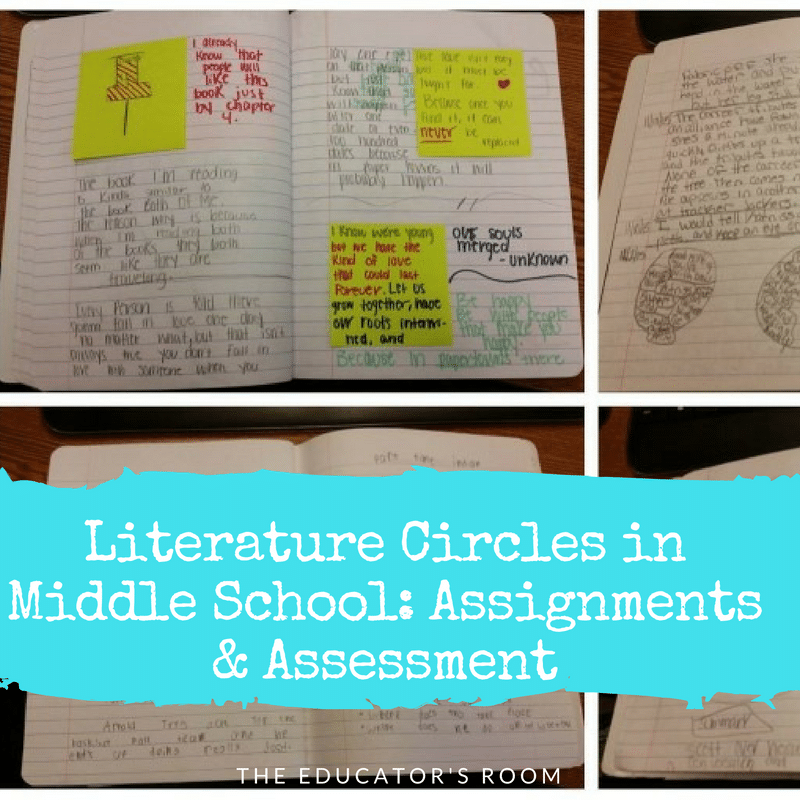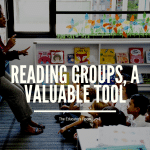Over the course of three articles, I have talked about doing Literature Circles with my 8th-grade students. For a list of the novels we used, check here. To read about the procedures I put in place for my students, check here. And for an explanation of how I used mini-lessons both as a full class and in the small Lit Circles, read here.
The big question remains: How do you grade students? I did a combination of standard-based and old fashioned “turn it in” style work for my students.
[fusion_builder_container hundred_percent=”yes” overflow=”visible”][fusion_builder_row][fusion_builder_column type=”1_1″ background_position=”left top” background_color=”” border_size=”” border_color=”” border_style=”solid” spacing=”yes” background_image=”” background_repeat=”no-repeat” padding=”” margin_top=”0px” margin_bottom=”0px” class=”” id=”” animation_type=”” animation_speed=”0.3″ animation_direction=”left” hide_on_mobile=”no” center_content=”no” min_height=”none”][bctt tweet=”How do you grade students?” username=”EducatorsRoom”]
I mentioned in a previous post that each group has a folder of work they must complete as a group. There are five assignments plus a tracking sheet in each folder.
The Tracking Sheet
I made a copy of a blank calendar for students and added due dates and any days that they would not have time to work in their Literature Circles so they could organize their time accordingly. On the calendar, they needed to track how they used their group time, what pages they read, and who had what “job” (recorder, time keeper, etc.). I created these as a way to help me see at a glance how they were doing in case I didn’t get to their group on a given day. I was surprised when, in my student survey at the end of the year, students said they learned a lot about organization using them. Many stated that they used the tips I taught them about backward planning and time management to use their own planners more efficiently. I give points for having it complete.
Discussion Guide
For each of the six books, I put together a brief six to ten question discussion guide that is specific to the novel, however, all six have common questions about theme, character, setting, etc. Students use these questions to guide their discussion, but I also ask that one person records the points that they talk about. I grade this on whether or not they do it, but I also visit groups and keep track of how well each member is meeting the following standards:
- I come to discussions prepared, having read the sections I was supposed to.
- I use evidence from the book to support what I have to say.
- I wait my turn to speak, stay on task, and do not interrupt others.
- I ask questions that have to do with the topic and add to the discussion.
- I am considerate of everyone’s contribution to the discussion whether or not I agree.
Students are given a 0-4 (4 being proficient), and conference with if they are not meeting the standards so they can do better the next time I come around to observe their group.
Wondering Sheet
One of the foundations of critical thinking is asking questions. Often when we read books together as a class I will stop and wonder aloud about something in the book. Sometimes kids will wonder things too, and sometimes they will have predictions. Occasionally they will have answers to my questions. At times I will stop and say, “What are you guys wondering about right now?” I want students to do this without my guidance as well, so each group’s folder contains a sheet for them to record what they wonder during each chapter of their book. This is another chance for discussion. Students are expected to start each Lit Circle with this question: What did you wonder about? I give them space to record their wonderings. I also give them space to write down any words they needed to look up (along with the definitions). I give this points for completion, but again I drop in on groups and listen to them discuss these and use the same standard-assessment as listed above.
Themes, Craft, and Connections Sheet
Because I want students to go beyond just plot and think critically about the text they are reading, I put together a Themes, Craft, and Connections sheet for each group. For each of the six novels, I pull out three or four topics that could lead to theme statements. Groups are to collect quotes and examples of each of the topics (for instance, “Education” may be one of the topics) and at the end, look at their evidence to figure out what that novel might be saying about that topic.
I also pull three or four things the author does with the text for them to think about and discuss. For instance, a few of the books have dual (or even multiple) narrators. This is part of the author’s craft. I ask them to discuss how this helps the meaning and purpose of the text.
Lastly, I ask them to talk about connections they made while reading. These may be to the themes or they may be to things in the plot. This is graded on completion.
Flow Map
Each group is expected to create a flow map of the plot of the book as they read. This shows basic plot comprehension and summary skills, but it also helps with discussions so they can refer back and remember when certain events happened in the book. This is graded on completion.
Character Maps
Additionally, groups are required to keep a character map for each major character in their book. Like their flow map, it shows comprehension but also serves as a guide during their discussions. Students are also able to note character development. This again is graded on completion.
Students are given a grade based on the completion of all the assignments in their group’s folders, however, it’s possible that not everyone in the group gets the same score. I do keep track of progress on the standards for discussion (taken from the Common Core State Standards Speaking & Listening Standards for 8th Grade) which means their end score is also determined by how well they meet the standards.
Last year, I also did a group Inquiry Project to cap off the year, but I will save that for another post.
Do you use Literature Circles with your students? If so, how do you assess and grade?
 [/fusion_builder_column][/fusion_builder_row][/fusion_builder_container]
[/fusion_builder_column][/fusion_builder_row][/fusion_builder_container]







Milwaukee teacher again. Do you, by chance, have available the resources (sheets, maps, organizers, etc.) that you include in students’ literature circle folders? I am putting together binders and having a hard time finding grade-/level-appropriate resources for literature circles.
Hi Ellie!
I do create the discussion guides and the Theme, Craft, and Connections sheets. The others are all student-generated. We try not to use pre-made organizers rather have the students create the organizer (or what we call thinking maps) themselves. Research shows this is part of developing the critical thinking skills rather than just filling in a sheet. I think I have some examples I could share.